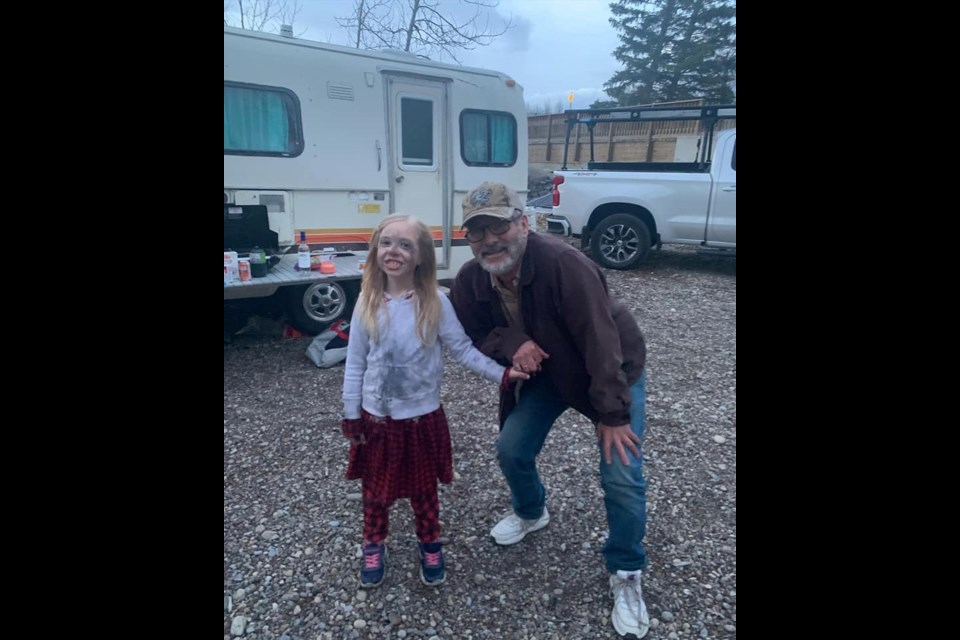David Milgaard, who made Cochrane his home after spending 23 years in prison under a wrongful conviction of rape and murder, has died in hospital at the age of 69, following a short battle with an illness.
Though his legacy is being the face of one of Canada’s legal system’s most infamous errors, Milgaard will be remembered by friends and family for much more than the prolific injustice he was forced to endure.
“He was incredibly resilient and passionate, and had the kindest, most generous heart,” said Crystal Blanchard, who, along with her family, befriended Milgaard while staying at the same campground for the last couple years.
“He still had a sparkle in his eye and a skip in his step. That was the most inspiring thing – to know somebody that could do everything in his power to turn a nightmare into a passion.”
Milgaard, at the age of 16, was arrested and charged for the murder of Saskatoon nursing aide Gail Miller, who was stabbed and left to die in the snow on the early morning of Jan. 31, 1969.
According to the advocacy organization Innocence Canada, (one of the founders of which worked on Milgaard’s case), police probed over 160 possible suspects during the investigation and found no leads.
Milgaard was arrested in May of that year through false allegations made by a friend of his, Albert Cadrain, who was later discovered to be a paid police informant.
Twenty-three years after his arrest, Milgaard was released in 1992 after mounting pressure over his conviction from the media and the public led the Supreme Court of Canada to call a new trial. In 1997, he was exonerated through DNA testing results that proved serial rapist Larry Fisher was responsible for Miller’s murder.
Canadian rock legends, The Tragically Hip, wrote the song "Wheat Kings" in 1992 to commemorate Milgaard’s story and create public awareness about the injustice he experienced.
In the years following his release from prison, Milgaard helped raise awareness about wrongful convictions and demanded action in the way Canada's courts review convictions.
“He was a huge advocate for the wrongfully accused,” said Blanchard. “He believed the prison system was set up to stack the cards against the inmates, specifically the young ones going in for misdemeanors and coming out feeling as though they can’t succeed.”
Milgaard gave presentations to university students hoping to become correctional officers and to law enforcement groups, but Blanchard said she hopes to see his work carried on.
“He made it his life’s purpose and I really hope that people can pick up that battle where he left it,” she said.
Blanchard believes that rather than be remembered for what happened to him, that Milgaard should be remembered for his work improving the correctional system and trying to reduce the chances of someone being wrongfully accused.
She added she also will think of him fondly for the “grandpa-like” treats he kept tucked away and would give her kids when they helped water the plants at his campsite.
Blanchard and her family saw him while out camping just last weekend. She believes she may have taken Milgaard's last photo the day before he died – an image with her daughter covered in soot from painting her face, holding hands with Milgaard.
While she is not close to his family and has not discussed the idea with them directly, Blanchard said she would support a state funeral for Milgaard – an idea that she’s seen circulating online. The funeral has the potential to become large and costly for the family because of Milgaard’s celebrity.
“He’s an icon in our country,” she said. “He’s very beloved and people have a lot of compassion for him.”
A petition spreading online calls for the Canadian government to offer Milgaard a state funeral to not only honour him but also to relieve his family of any financial burden during the traumatic time.
Blanchard said she supports the idea, but would want to know first how his family feels about it.
She also hopes to one day meet his family to give her condolences and share the many stories of the man who her kids lovingly referred to as their “camp Grandpa.”



